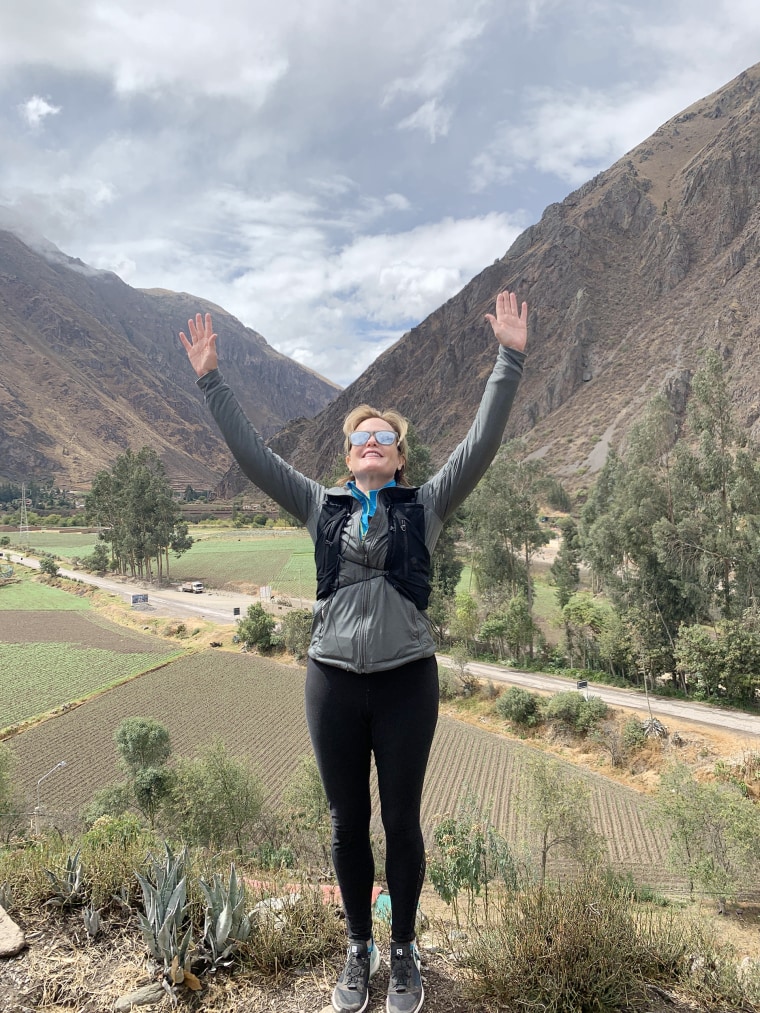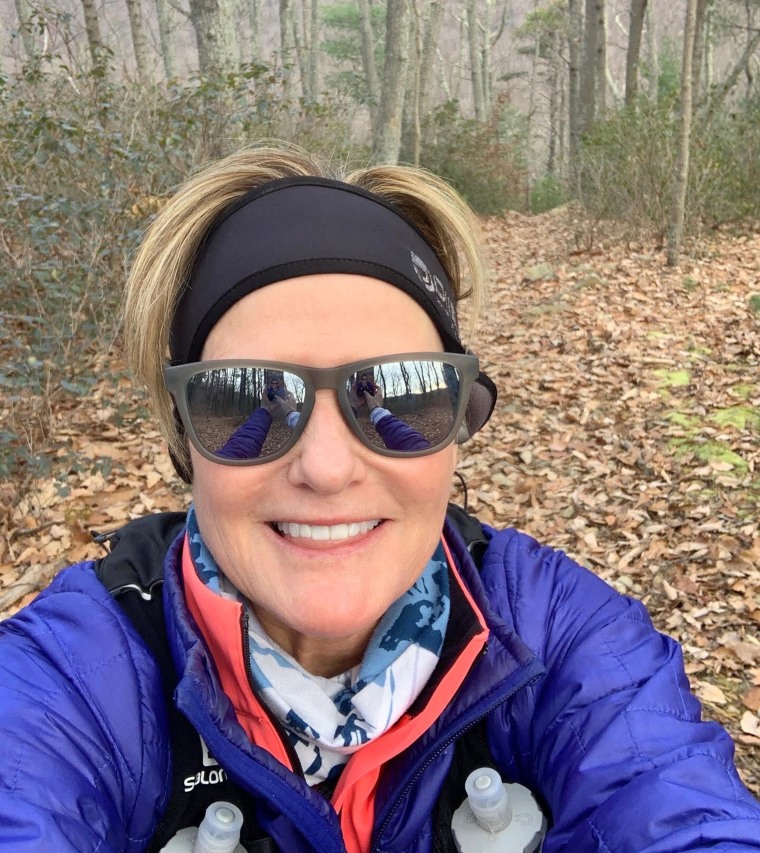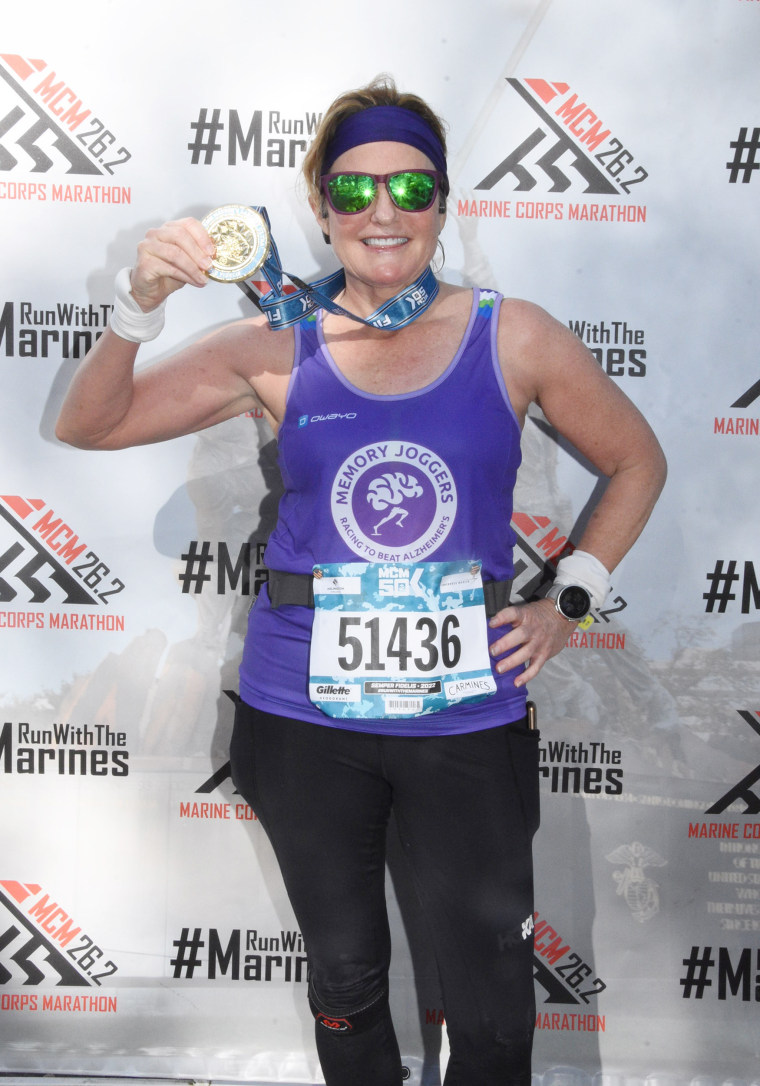
Woman, 56, Runs World Marathon Challenge: 7 Marathons on 7 Continents in 7 Days – TODAY
Jill Jamieson is up for the challenge. Despite telling others she’s not an elite athlete, all would disagree when they learn she’s training to participate in the World Marathon Challenge taking place from Jan. 31 to Feb. 6. This event involves running seven marathons on seven continents in seven days.
And Jamieson, 56, hopes follow that feat by running in the North Pole Marathon in April. Completing the North Pole Marathon will earn her the coveted Marathon Grand Slam, which includes marathons on all seven continents plus the North Pole. Only a small number of runners complete it in a single year. Last year, just 116 men and 33 women joined the Marathon Grand Slam Club.
“I’m an average, somewhat weathered human doing the best she can, so I may or may not be able to reach the finish line of this epic challenge, but I promise to give it everything I have,” she tells TODAY.com.

Her desire to take on this challenge stems from her love for her father, who passed away from Alzheimer’s disease. “Running helped me cope following my father’s diagnosis in 2010,” she says. “I run to raise awareness and funds to fight Alzheimer’s.”
Jamieson describes her father as a brilliant man. “About the time he retired, I could see he was lost,” she says, adding that the changes were subtle initially.
But after she came home from a work trip — Jamieson is a financial advisor for the U.S. government assisting countries in rebuilding infrastructures — things were different.
“When I returned home and saw my father, I could see that the changes were more pronounced,” she says. “We had him tested for dementia, and the results came back as positive. The drugs didn’t help much, and in the last six to seven years, he couldn’t recognize us. It’s a sad horrible disease.”
While Jamieson was a runner before her dad’s diagnosis, leaning into the sport even more has helped her cope — even though running isn’t her first choice of athletic activity. She prefers playing tennis, skiing and swimming. But often, her work took her to places where those sports were hard to find.
“In a hotel, you can almost always find a treadmill,” she says. “Running is a good way to deal with any sort of angst. For me, it’s a healthy outlet. So running for my dad made sense.”
In 2005, she ran the Chicago marathon, her first 26.2-mile race, in four hours and two minutes. Years later, she still struggles with the mental challenge of distance running.
“It still hurts, and when I run, I have an inner dialogue in my head, kind of like having an angel on one shoulder and a devil on the other asking me ‘Why do I run?’” she jokes.

In one conversation, the devil even told her to take an Uber home.
“I fight that,” she says. “Running and finishing a run is a great sense of accomplishment. And if I don’t stretch myself, I’ll never know how far I can go.”

To train for the World Marathon Challenge, she rises every morning at 4, drinks a lot of coffee and heads out for a 10 mile run. “At my age, I run smarter,” she says. “The best part is watching the sun rise over the Potomac.”
She often swims and rides her bicycle after the run. “Swimming and cycling are great cardio exercises,” she says. When it’s too cold, she uses a stationary bike at home.
Fortunately, she prefers the cold days. Wearing layers helps, but when temperatures dip below 20 or 30 degrees Fahrenheit in places like Antarctica, where she ran in 2017, she’s fully covered. On one run, it was so cold she developed a cough that lasted for three weeks. Tissues in her lungs froze and so did the sweat on her face. “Doctors patrol the area to make sure everyone is OK,” she says. “It’s rough, but I find it harder running in 100 degree weather.”
Almost as bad as those hot, humid days are the ones when she runs at night. To get through, she wears a light on her head.
Due to the time difference, she expects to arrive in some places for the World Marathon Challenge at night, such as Australia. Wearing a light on her head helps her see in the dark.
For Jamieson, the challenge is about adapting to different elements, staying on the path and feeling proud of herself for moving forward.
“Calling attention to this disease and finding solutions to Alzheimer’s is why I do this,” she says. “One out of every three seniors will suffer from Alzheimer’s or dementia. So many of us are impacted by this disease.”
Her family is supportive and somewhat amused by her training schedule and her willingness to attempt these grueling marathons. Her sister will join her at the end of World Marathon Challenge in Miami.
Upon her return, she’ll train for the North Pole Marathon in April.
“Jill’s incredible effort, spirit, and passion will make a difference in the lives of those facing Alzheimer’s,” Wendy Vizek, vice president of Constituent Events and Field Operations for the Alzheimer’s Association, tells TODAY.com.
Follow along with Jill’s journey on her Facebook page.